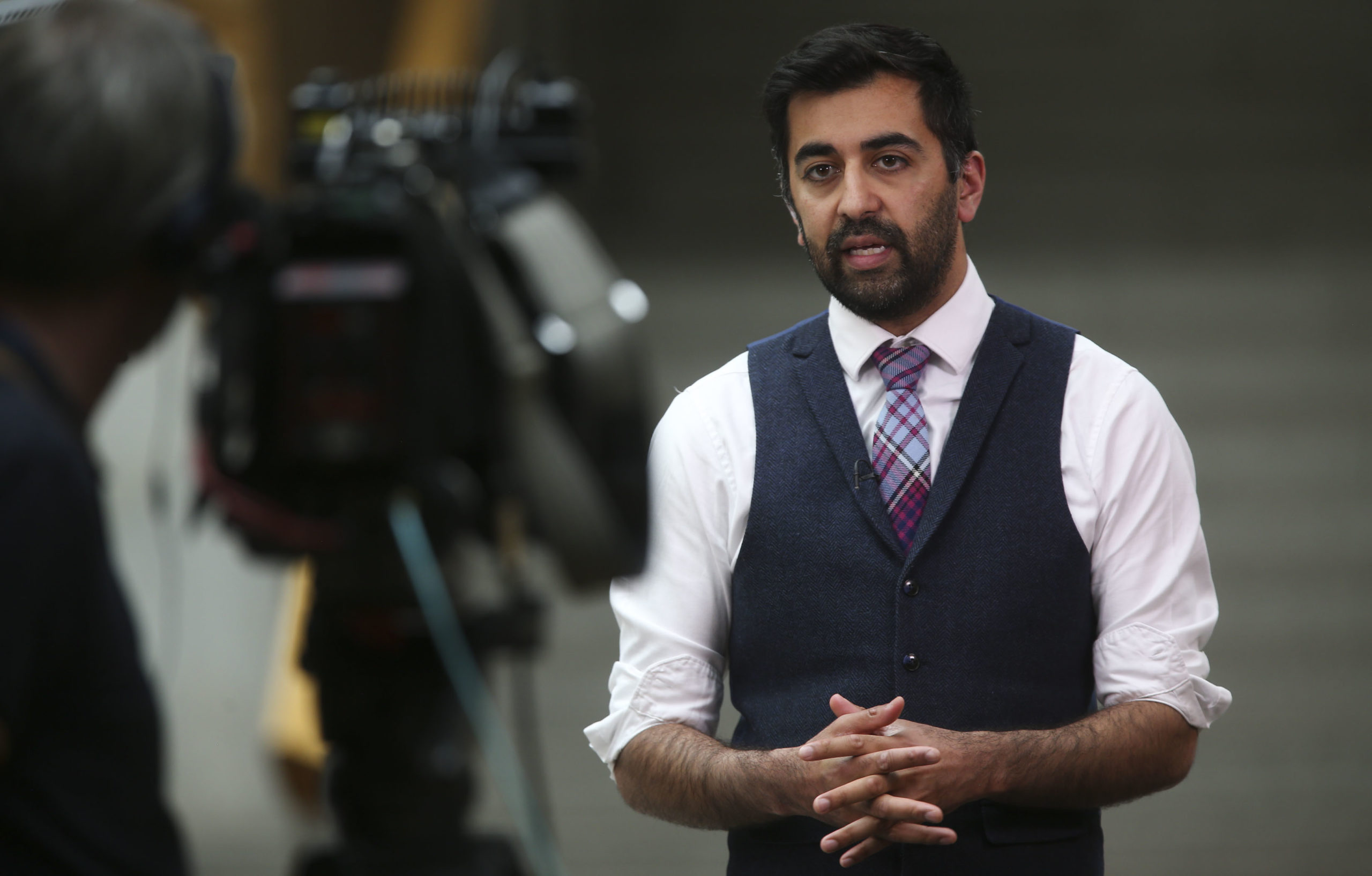Scottish government wants to exempt ‘criticism of transgender identity’ from proposed hate crime law

The Scottish government’s justice secretary Humza Yousaf. (Getty/Fraser Bremner)
The Scottish government's justice secretary Humza Yousaf. (Getty/Fraser Bremner)
The Scottish government has been accused of turning a hate crime bill into a “transphobes’ charter” after a move to exempt “criticism of matters relating to transgender identity” under sustained pressure from anti-trans activists.
Justice minister Humza Yousaf submitted an amendment on Monday (25 January) to his proposed Hate Crime and Public Order bill, which seeks to modernise and consolidate hate crime laws in Scotland.
Yousaf’s “protection of freedom of expression” amendment states that “behaviour or material is not to be taken to be threatening or abusive solely on the basis that it involves or includes discussion or criticism of matters relating to transgender identity”.
The amendment would prevent charges for cases where people’s views solely construe “criticism of matters relating to transgender identity”, which is defined as “identity as a female-to-male transgender person, male-to-female transgender person, a non-binary person, a person who cross-dresses”.
Transgender issues are singled out by the amendment, which does not similarly apply to “criticism” of identity relating to race, sexual orientation or other protected characteristics.
Existing exemptions in the bill concern criticism of sexual conduct, religious proselytising, and discussion and criticism of religion. The amendment does not explain what could be considered legitimate “discussion or criticism” of trans identity.
MSPs propose further amendments to hate crime bill.
The hate crime bill has become an intense point of focus for anti-trans activists in Scotland, with pressure groups and trans-hostile lawmakers suggesting that providing trans people with the same protections afforded to other minority groups would stifle freedom of speech.

Humza Yousaf put forward the proposed amendment to his hate crime bill. (Getty/Fraser Bremner)
In addition to Yousaf’s changes on behalf of the Scottish government, other trans-hostile amendments have been put forward by parliamentarians from other parties.
Conservative MSP Liam Kerr has proposed an amendment that would carve out specific protections from hate crime laws for “urging of persons to modify their transgender identity, stating that sex is an immutable biological characteristic, stating that there are only two sexes, or refusing to use a person’s preferred name or pronoun”.
Kerr is also seeking an amendment protecting “criticism” of same-sex marriage, proposing a carve-out for “discussion or criticism of marriage which concerns the sex of the parties to marriage”.
Meanwhile, a proposed amendment by Labour MSP Rhonda Grant would add an exemption for self-identified feminists, suggesting: “Behaviour or material is not taken to be threatening or abusive when it is for the purpose of advocating for women’s rights.”
The amendments will be considered as the bill continues through its committee stage.
Scottish government accused of ‘pandering to transphobia’.
Scottish nationalist MP Joanna Cherry, an opponent of the bill in its initial form, celebrated the government’s amendment on Twitter, tweeting: “Bravo @HumzaYousaf. The @scotgov have introduced an amendment to #HateCrimeBill to protect #FreedomOfExpression in respect of discussion and criticism of matters relating to transgender identity. A huge victory for #womensrights and #FreedomOfSpeech”.
However, critics accused the SNP of “pandering to transphobia” with the change.
One Scottish Greens campaigner wrote: “Not sure there’s a more direct way for the SNP leadership to pin their colours to the mast than suggesting changes to the hate crime bill that openly suggest removing transphobia as a hate crime. Imagine removing criticism of ‘homosexual identity’ from hate crime legislation.
“There’s no difference here. Humza Yousaf is providing an escape hatch for transphobes…. this is SNP leadership flagrantly pandering to transphobia in their ranks.”
https://twitter.com/tristangrayedi/status/1354398995683147777
https://twitter.com/Queer_Scot/status/1354386790791188481
Others branded the document a “transphobes’ charter” over the proposed changes.
Humza Yousaf did not respond to a request for comment from PinkNews. However, after being approached for comment, Yousaf posted a Twitter thread claiming there was “a fair bit of misunderstanding” about the provisions.
He claimed that “no characteristic is being singled out” by the bill, citing separate freedom of expression protections around sexual conduct and religion.
His amendment does explicitly single out criticism of transgender “identity”. The existing bill does not permit criticism of an individual’s sexual orientation identity or religious identity, but concerns other factors relating to those protected characterises.
He added: “Nobody is given carte blanche. FoE [freedom of expression] provisions provide reassurances around (often contentious) issues of debate. However, regardless of an FoE clause if behaviour is threatening or abusive and intended to stir up hatred you will be committing one of the new offences Bill creates.
“There is no doubt that there are genuine fears from people they may be prosecuted for taking part in a contentious debate. Although I maintain this wouldnt be the case, FoE clauses can help give reassurance. If behaviour crosses criminal threshold it will be prosecuted.”
In November, Yousaf had claimed the bill would apply to “threatening behaviour” from anti-trans activists but not anti-trans statements.
He said: “If there’s threatening behaviour which accompanies that expression and it can be proved beyond reasonable doubt that it was intended to stir up hatred, then of course it could be prosecuted, but that is not down to the perception of any particular victim, but an objective analysis by the court.
“By saying a trans woman is not a woman is not in itself going to lead to a prosecution.”

